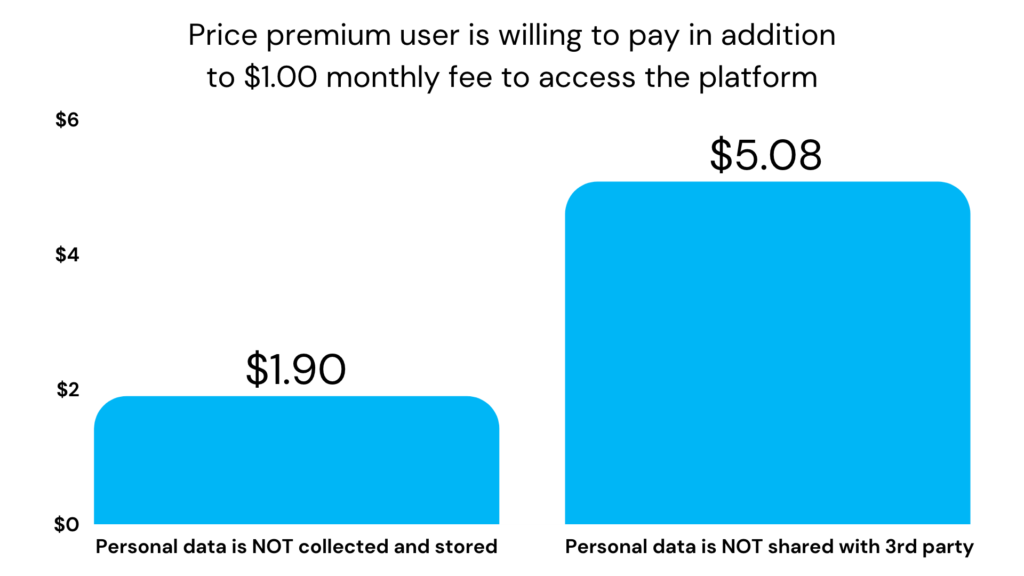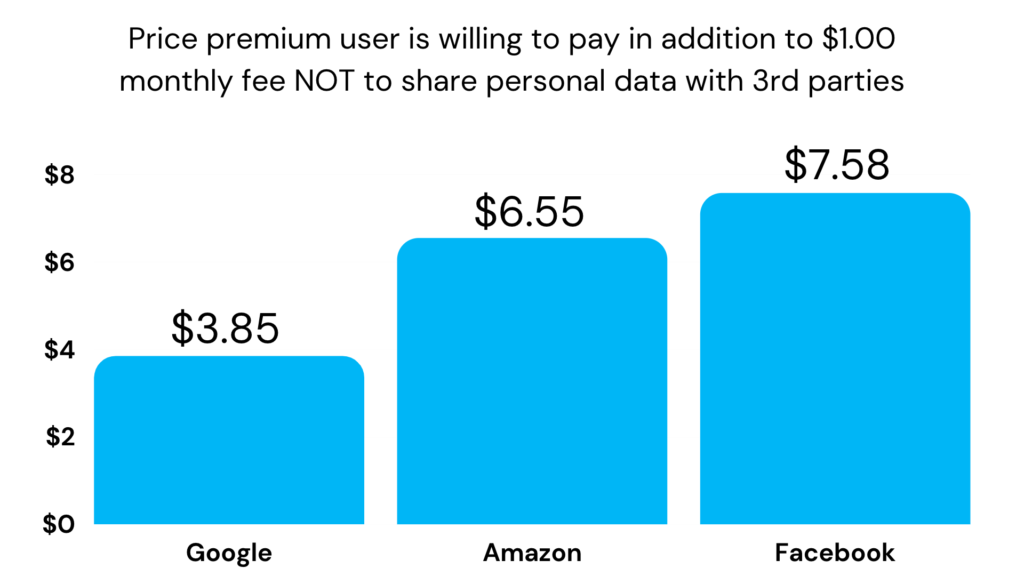A recent GroupSolver study reveals concern among digital consumers about their personal information being collected and sold, and nearly half are willing to pay platforms to keep their data private.
Rasto Ivanic, Co-founder and CEO of GroupSolver®
Every day, users’ online interactions are monitored and stored by technology companies to conduct regular business. Data points such as clicks, likes, shares, etc., make up the valuable product that tech companies buy, trade, and sell. However, this business raises concerns about equity, risk, and data security, and many digital users do not like these practices and worry about the integrity of the use of their data.
More specifically, GroupSolver’s survey found that 73% of digital users are at least somewhat concerned about websites and apps collecting and distributing their personal data. Further, 80% of those who are familiar in some detail with these practices are concerned about the collection and distribution of their digital data. On the other hand, only 60% of respondents who are unfamiliar show the same concern. The correlation between familiarity with the topic and concern with it suggests that the more we know about data privacy and security, the more concerned we are about personal data exploitation.
How much value do digital users place on data privacy?
GroupSolver’s probability of purchase pricing research provides an estimate for digital users’ value on data privacy. 39% of respondents indicate they would be willing to pay a monthly fee in exchange for their data being treated more securely. Out of those willing to pay, and holding all other variables equal, 57% would choose their data not to be tracked and stored by companies and websites. We estimated that these users would be willing to pay about $2 per month for this security. In addition, 62% of users would choose their data not to be shared with 3rd parties and would be willing to pay about $5 per month for this security.
This data reveals a few interesting points. First, there is a substantial number of digital users who are concerned enough about their online data security that they are willing to pay for it. Second, these users are significantly more concerned about their data being shared with 3rd parties versus simply being collected and stored.

The results also reveal substantial differences in our confidence across prominent digital platforms. Specifically, Facebook and Google users would pay different price premiums to these platforms to gain better personal data security. Google users are willing to pay less than $4 for Google not to share their data with 3rd parties, while Facebook users are willing to pay about double for the same service. While the study doesn’t explicitly reveal why this difference exists, we can infer that Facebook users may place less trust in Facebook’s handling of personal data than Google users place in Google’s*.

*Note: The limited size of this study (N=200) may not show the entire picture; a broader study would be necessary to reveal further nuances and solidify this hypothesis.
Could better security of personal digital data be a profitable opportunity for tech companies?
With increasing awareness and concern about tech companies’ usage of their users’ personal data and considering that a substantial number of users are willing to pay for better security, this presents a new business opportunity for tech companies.
Let’s use Facebook as an example. In 2020, the average revenue per user in the United States and Canada was about $3.40 per month and there were about 258 million monthly active users. Considering GroupSolver’s study results, we could project that about 100 million (39%) users would be willing to pay a monthly fee in exchange for better data security. About 67 million (67%) of these Facebook users would prefer their data not to be shared with 3rd parties. Considering that the respondents in our study are willing to pay $7.50 per month for this Facebook security feature, this could generate $505.5 million in revenue. Of course, this back-of-the-envelope calculation is only directional and there would need to be more extensive pricing research and concept testing before introducing such a product to Facebook’s users, but it is a potential new venture for companies like Facebook and a possible win-win solution.
Creating a more secure digital world
Offering better security options for users has the potential to change the digital space. Users want to be reassured that their personal information is secure and want tech companies to be transparent with the practices they use. It is difficult to forecast where the digital world will go next, but as it expands and users’ awareness and concern with personal security grow, big tech will need to consider adjusting their business model with the times. Whether it’s a small monthly fee for personal data security or another innovative strategy, we speculate that tech companies will need to act sooner rather than later.
Rasto Ivanic is a co-founder and CEO of GroupSolver® – a market research tech company. GroupSolver has built an intelligent market research platform that helps businesses answer their burning why, how, and what questions. Before GroupSolver, Rasto was a strategy consultant with McKinsey & Company and later he led business development at Mendel Biotechnology. Rasto is a trained economist with a Ph.D. in Agricultural Economics from Purdue University, where he also received his MBA.
Follow Brilliance Security Magazine on Twitter and LinkedIn to ensure you receive alerts for the most up-to-date security and cybersecurity news and information.


